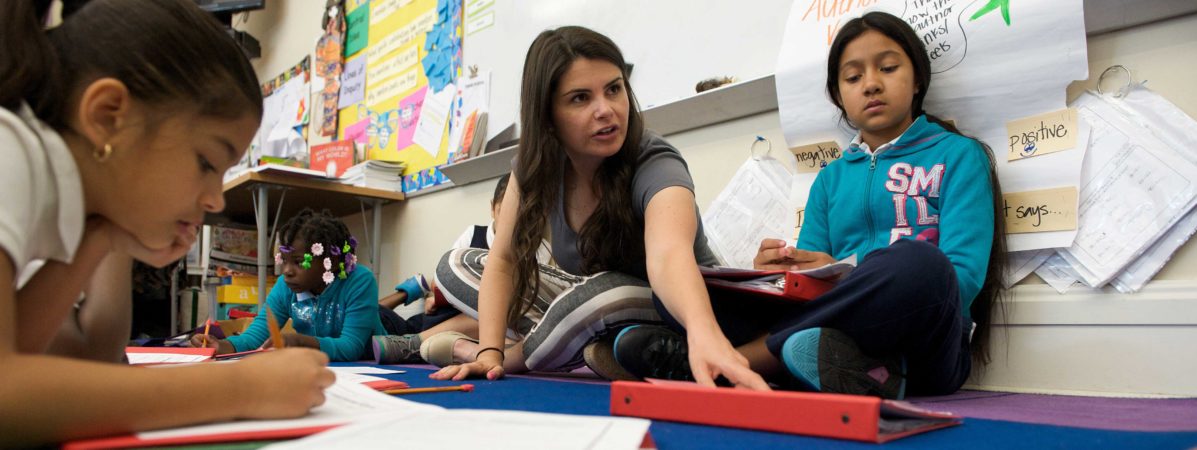
Teachers don’t have a lot of spare time on their hands.
When they aren’t working with a classroom full of students, they may be assessing student work, designing unit plans with colleagues, devising strategies for a particular learner, and advancing their own learning.
Most states require teachers to complete a minimum number of professional development hours in order to retain their teaching licenses. That requirement can range from 24 hours a year in Kentucky to 175 hours every five years in New York.
What is typically recognized as professional development by states and districts takes place in formal settings – workshops, in-service days, and structured courses – attended in the evenings, on weekends and summer breaks, and measured in time spent.
Teachers are learning in informal settings, such as EdCamps, Twitter chats, researching online, checking in with experts, collaborating with colleagues, too, but these engagements rarely count toward licensure requirements.
Micro-credentials offer a way to provide more varied professional development opportunities that maximize teachers’ time. Through the submission of artifacts such as classroom videos, unit designs, and professional reflections, micro-credentials allow teachers to show what they know, and earn recognition for skills and competencies gained in formal and informal settings.
But most teachers don’t have time to earn a micro-credential just for the sake of earning it. They need an incentive. The micro-credential, displayed as a digital badge, needs to have currency within their school, district, and peer groups.
To achieve this, Digital Promise is building an ecosystem of educators and partners to identify, recognize, and reward articulated teaching practices with competency-based micro-credentials.
What might this ecosystem look like? One example is Google certifications. Teachers across the country can become Google Educators, Google Trainers, or Google Certified Teachers.
Teachers earn the certificate. Schools, districts, and peers recognize it as a valuable credential. And the issuer, Google, ensures the integrity and rigor of the process.
All three components – the earner, the recognizer, and the issuer – are essential to establishing an ecosystem that supports micro-credentials for educators.